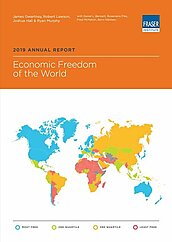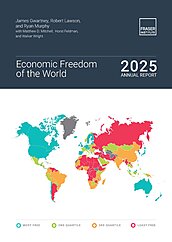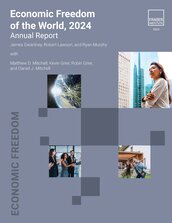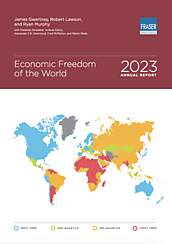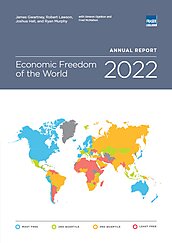Hong Kong and Singapore retain the top two positions with a score of 8.91 and 8.71 out of 10, respectively. The rest of this year’s top scores are New Zealand, Switzerland, United States, Ireland, United Kingdom, Canada, Australia, and Mauritius.
It is worth noting that the United States ranks in the top 5 in 2017 after having ranked in 12th place as recently as 2014. The rankings of other large economies in this year’s index are Japan (17th), Germany (20th), Italy (46th), France (50th), Mexico (76th), Russia (85th), India (79th), China (113th), and Brazil (120th). The 10 lowest‐rated countries are: Iraq, Republic of Congo, Egypt, Syria, Democratic Republic of Congo, Angola, Algeria, Sudan, Libya, and lastly Venezuela.
Nations in the top quartile of economic freedom had an average per capita GDP of US$36,770 in 2017, compared to $6,140 for bottom quartile nations. Moreover, the average income of the poorest 10% in the most economically free nations is almost twice the average per capita income in the least free nations. Life expectancy is 79.4 years in the top quartile compared to 65.2 years in the bottom quartile, and political and civil liberties are considerably higher in economically free nations than in unfree nations.
